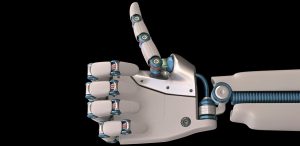The 14th International Conference on Critical Information Infrastructures Security, CRITIS 2019, will be held in Linköping on September 23-25 2019.
CRITIS 2019 aims at bringing together researchers, professionals from academia, critical (information) infrastructure operators, industry, defence sector and governmental organisations working in the field of the security of critical (information) infrastructure systems. Moreover, CRITIS aims to encourage and inspire early stage and open-minded researchers in this demanding multi-disciplinary field of research.
Francesco Flammini, Senior Lecturer at Linnaeus University, is a part of the Technical Committee of the conference and will be co-charing the industry/project dissemination session.
For more information about the conference, see the conference website.
CALL FOR CONTRIBUTIONS — Industrial/practical experience reports
https://critis2019.on.liu.se/CFP-CRITIS2019-IndExp.pdf
Critical infrastructures must fulfil dependability requirements that impose the use of rigorous techniques during procurement, development, commissioning and training/preparedness, as well as in regulatory audits of the operational systems.
In this CRITIS special session we solicit short presentations from an industrial perspective addressing any aspect of such processes and of the supervision of critical operations. Reports of actual cases are welcome including success stories or failure/emergency management operations with the aim of sharing lessons learnt. Contributions to this session are also welcome by academics working on research projects with industrial partners who have driven experimental evaluations of research outcomes and prototypes with the help of real-world data, or have validated hypotheses by performing surveys and interviews.
The submissions in this session have the following characteristics:
- Papers of 1-2 pages in length (including references and figures), using the Springer format.
- The submissions are NOT anonymised
- The title of the submission must include the words “Industry/Experience report”
The submissions in this session will be evaluated by the two session chairs:
- Sokratis K. Katsikas (NTNU, Norway & Open University of Cyprus, Cyprus)
- Francesco Flammini (Linnaeus University, Sweden)
The final versions of the contributions (reflecting the comments by the session chairs and necessary improvements) will be shown on the conference web page and presented during the conference, and can be later extended and published in other venues.
Important dates:
- Submission deadline: 9th June 2019
- Notification of acceptance: 20th June 2019
- Final version submission: 9th September 2019
UPDATE SEPTEMBER 23rd 2019
Final program
CRITIS 2019_Smart-Troubleshooting_POSTER
UPDATE DECEMBER 22nd 2019
The industry session white paper has been published in CRITIS’19 conference proceedings and it is now accessible here.











Recent Comments